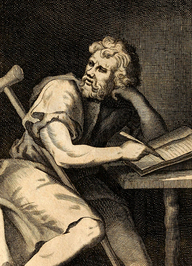 author
authorDiscover the Best Books Written by Juan Ramón Jiménez
Juan Ramón Jiménez Mantecón (Spanish pronunciation: [xwan raˈmoŋ xiˈmeneθ manteˈkon];[a] 23 December 1881 – 29 May 1958) was a Spanish poet, a prolific writer who received the 1956 Nobel Prize in Literature "for his lyrical poetry, which in the Spanish language constitutes an example of high spirit and artistic purity." One of Jiménez's most important contributions to modern poetry was his advocacy of the concept of "pure poetry."
Juan Ramón Jiménez was born in Moguer, near Huelva, in Andalucia, on 23 December 1881. He was educated in the Jesuit institution of San Luis Gonzaga, in El Puerto de Santa María, near Cadiz. Later, he studied law and painting at the University of Seville, but he soon discovered that his talents were better used for writing. He then dedicated himself to literature under the influence of Rubén Darío and French symbolism. He published his first two books at the age of eighteen, in 1900.
The death of his father the same year devastated him, and a resulting depression led to his being sent first to France, where he had an affair with his doctor's wife, and then to a sanatorium in Madrid staffed by novice nuns, where he lived from 1901 to 1903. He was among the contributors to the Madrid-based avant-garde magazine Prometeo between 1908 and 1912. In 1911 and 1912, he wrote many erotic poems depicting romps with numerous women in numerous locales.
Some of them alluded to sex with novices who were nurses. Eventually, apparently, their mother superior discovered the activity and expelled him, although it is not known whether the sexual activity described in his poems actually occurred. The main subjects of many of his other poems were music and color, which, at times, he compared to love or lust. He suffered a mental breakdown and depression, so he stayed hospitalized in France and Madrid.
He celebrated his home region in his prose poem about a writer and his donkey called Platero and I (1914). In 1916 he and Spanish-born writer and poet Zenobia Camprubí were married in the United States. Zenobia became his indispensable companion and collaborator. Upon the outbreak of the Spanish Civil War, he and Zenobia went into exile in Puerto Rico, where he settled in 1946. Jiménez was hospitalized for eight months due to another deep depression.
He later became a Professor of Spanish Language and Literature at the University of Puerto Rico. His literary influence on Puerto Rican writers strongly marks the works of Giannina Braschi, René Marqués, Aurora de Albornoz, and Manuel Ramos Otero. The university named a building on campus and a writing program in his honor. He was also a professor at the University of Miami in Coral Gables, Florida. While living in Coral Gables, he wrote "Romances de Coral Gables." In addition, he was a professor in the Department of Spanish and Portuguese at the University of Maryland, which was renamed Jimenez Hall for him in 1981.
In 1956, he received the Nobel Prize in Literature; two days later, his wife died of ovarian cancer. Jiménez never recovered from the emotional devastation, and he died two years afterward, on 29 May 1958, in the same clinic where his wife had died. Both are buried in his hometown of Moguer, Spain. Although he was primarily a poet, Jiménez's prose work Platero y yo (1917; "Platero and I"; Platero is a donkey) sold well in Latin America and, in translation, won him popularity in the USA.
He also collaborated with his wife in the translation of the Irish playwright John Millington Synge's Riders to the Sea (1920). His poetic output during his life was immense. Among his better known works are Sonetos espirituales 1914–1916 (1916; “Spiritual Sonnets, 1914–15”), Piedra y cielo (1919; “Stones and Sky”), Poesía, en verso, 1917–1923 (1923), Poesía en prosa y verso (1932; “Poetry in Prose and Verse”), Voces de mi copla (1945; “Voices of My Song”), and Animal de fondo (1947; “Animal at Bottom”). Both Jiménez and Camprubí used a simplified Spanish orthography different from the RAE standard. A collection of 300 poems (1903–53) in English translation by Eloise Roach was published in 1962.
Best author’s book



Written books
1


















